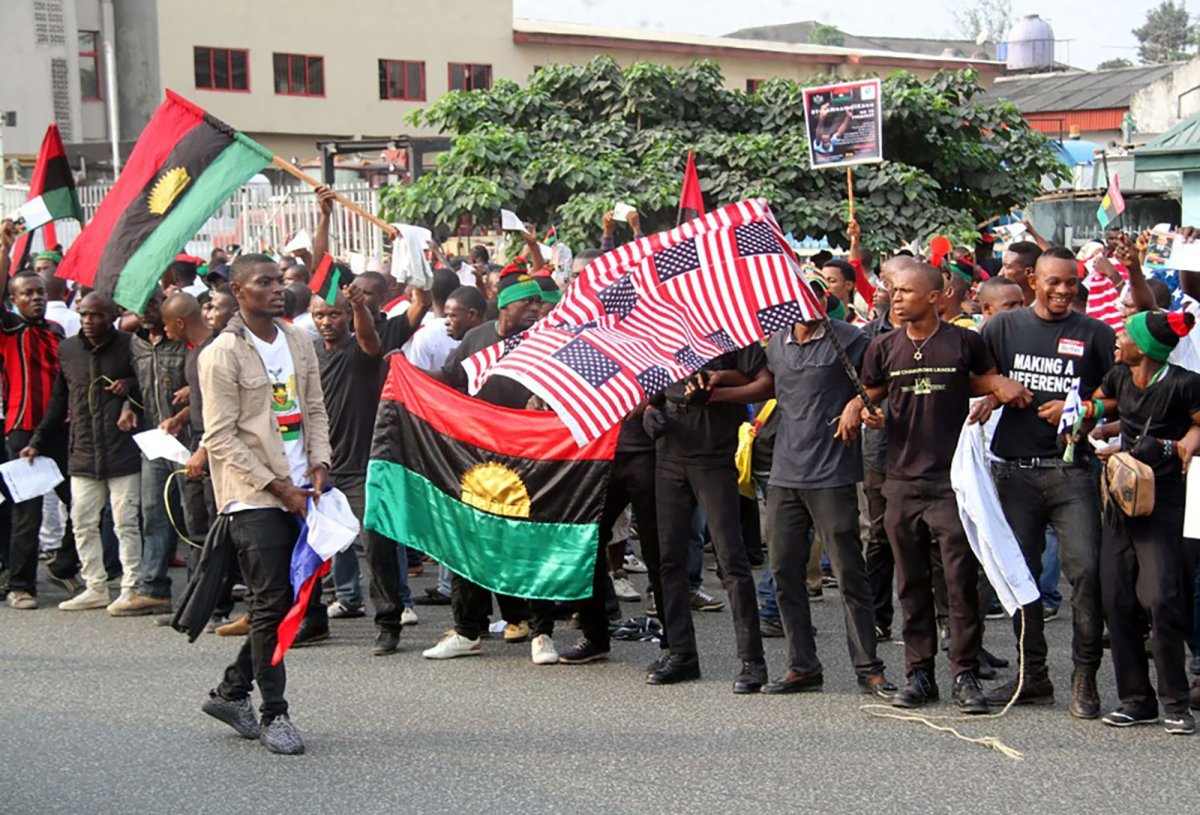Ahead of the 50th anniversary of a brutal civil war that left over a million dead, Nigeria's vice-president has urged secessionists to abandon their calls for an independent state of Biafra.
Yemi Osinbajo, who is Nigeria's acting president while President Muhammadu Buhari is absent on sick leave, spoke at an event in the capital Abuja on Thursday.
Tuesday will mark 50 years since a Nigerian military general, Odumegwu Ojukwu, declared an independent Republic of Biafra in the east of the country, inhabited mostly by the Igbo ethnic group. The declaration sparked a three-year civil war in which Nigerian forces blockaded Biafra's borders, and resulted in many within the newfound state starving to death.
Biafra was subsumed back into Nigeria at the end of the civil war in 1970, but there has been an uptick in pro-Biafra agitation in recent years. Nigerian police arrested Nnamdi Kanu, a British Nigerian dual national, in Lagos in October 2015; Kanu is the head of the secessionist Indigenous People of Biafra (IPOB).

Nigerian authorities released Kanu on bail in April after almost two years without trial, but his detention sparked widespread and sometimes bloody protests in the West African country, which is composed of hundreds of diverse ethnic groups. Amnesty International said in November 2016 that Nigerian security forces had killed at least 150 pro-Biafra protesters since August 2015; the Nigerian army denied the allegations and said the protesters had perpetrated violence.
"Today some are suggesting that we must go back to the ethnic nationalities from which Nigeria was formed. They say that secession is the answer to the charges of marginalization," said Osinbajo.
"This is also the sum and substance of the agitation for Biafra. The campaign is often bitter and vitriolic, and has sometimes degenerated to fatal violence. Brothers and sisters, permit me to differ and to suggest that we're greater together than apart."
Modern Nigeria was formed in 1914 by the amalgamation of the Northern and Southern Nigeria Protectorates, administered by the British colonial empire. The country's three dominant ethnic groups are the Hausa-Fulani, the Yoruba and the Igbo, which are concentrated in the north, west and east respectively. The country's population is also split almost 50-50 between Muslims, who mostly live in the north, and Christians, who are based in the south.
Pro-Biafra activists claim that Igbos have been marginalized from socioeconomic development and political opportunities: The current president is a northern Muslim belonging to the Hausa-Fulani, while Osinbajo is a Yoruba from Lagos. The activists also celebrated the election of U.S. President Donald Trump, with Kanu's wife telling Newsweek that Trump would support the right to "self-determination" for pro-Biafra activists.
Buhari, who was a Nigerian general during the Biafra war, has dismissed the protests as being carried out by people "who were not even born during the war."
Osinbajo took a more restrained tone on Thursday and pointed to the example of the United States, a country composed of many ethnic groups and immigrant populations.
"The truth is that many, if not most nations of the world are made up of different peoples and cultures and beliefs and religions, who find themselves thrown together by circumstance," said Osinbajo. "The most successful of the nations of the world are those who do not fall into the lure of secession, but who through thick and thin forge unity in diversity."
Buhari has been absent from Nigeria for much of 2017; he traveled to the U.K. in January for medical treatment and did not return for almost two months. On May 7, the 74-year-old president again traveled to London to receive further treatment and is yet to return, sparking speculation from Nigerians about his long-term health.
Uncommon Knowledge
Newsweek is committed to challenging conventional wisdom and finding connections in the search for common ground.
Newsweek is committed to challenging conventional wisdom and finding connections in the search for common ground.
About the writer
Conor is a staff writer for Newsweek covering Africa, with a focus on Nigeria, security and conflict.
To read how Newsweek uses AI as a newsroom tool, Click here.








